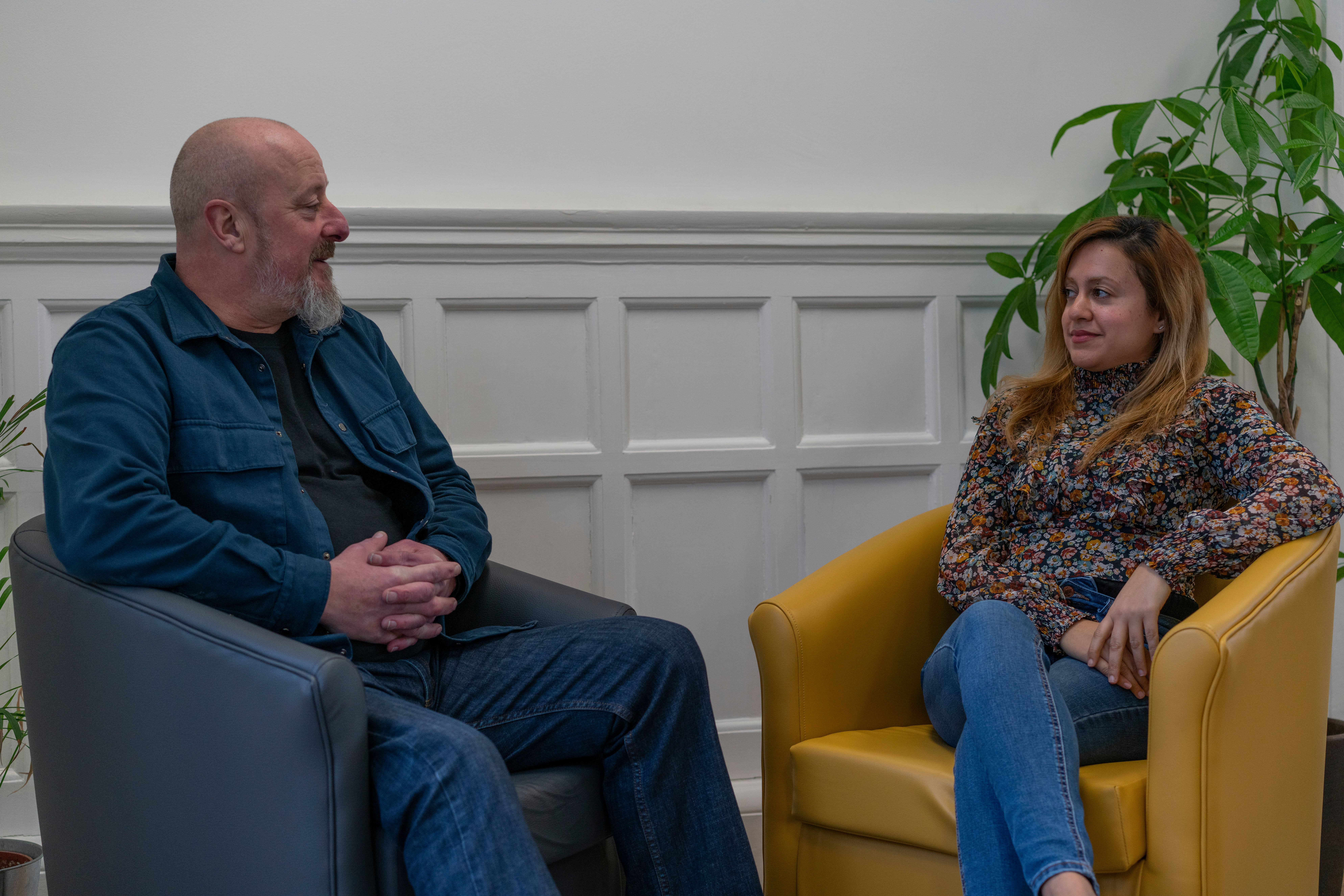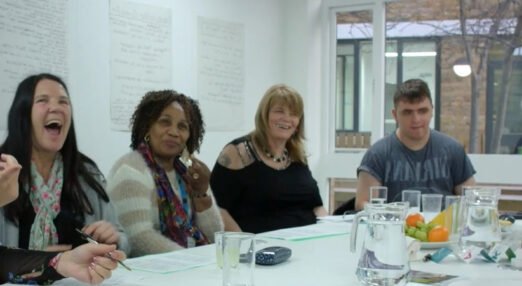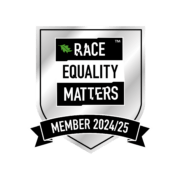Peer Support in Practice
Together has both Peer Support Volunteers and Peer Support Workers delivering support across our Registered, Supported Housing, Community-Based services and Criminal Justice services.

Within the services that deliver peer support, there is a Peer Support Co-ordinator who works alongside the local Service Manger to facilitate the delivery and development of our peer support offers.
Together has a comprehensive Peer Support Framework, underpinned by our Peer Support Model and Principles, utilised by all those involved in peer support within a service. This ensures consistency in our approach to implementation and the overall delivery and development of peer support locally.
At Together we offer both 1-2-1 and group peer support, which can be delivered online, in person, via phone or within the community, to give people choice about the format and style that will work best for them.

One-to-one – this is regular, often weekly, support from a chosen Peer Supporter that can take place in person, on the phone or online. How this works is decided by the person being supported and their Peer Supporter, and there are regular review meetings hosted by Peer Support Co-Ordinators.
An individual receiving peer support in one of our Norfolk services told us the following about their experience:
“I felt that with my Peer Supporters (PS’s) there wasn’t any sense of judgement and there was an open atmosphere. I feel relaxed and comfortable. I found myself able to talk freely and not having to think before I speak as such. I didn’t seem to have to try so hard to explain things to feel understood, my PS’s would just “get it”. There’s more of a feeling of equality which made me feel that what I was going through was a normal reaction to my life experiences. I don’t feel broken.”
“My PS’s have had to face many of the challenges that I have before me, and they have achieved despite of them. They talk about their difficulties along the way including many of the doubts that I am having, and this gives me hope that I too can make positive changes.”
“There are many subtle elements involved in the process to recovery before it “clicks”. My PS’s have been patient during this incubation period because they understand and have experienced the process of recovery.”
“I believe that there is no amount of academic learning that can replace that of lived experience. I cannot see how someone can come from a place of full understanding without some degree of lived experience to draw from.”
“Being alone is a trigger for the intrusive thoughts that I experience at times. Despite that, I can still be around and have been around lots of people and have still experienced these thoughts, while still feeling alone. This is not the case with my PS’s. I believe this is due to the sense of connection and it has felt like there is an osmosis, a transfer of understanding and emotion.”
“The support of my PS’s helped me recently to take part in a gaming event in Liverpool where there were over 1000 people competing. I felt very proud of that and feel it was a big milestone in my recovery journey.”
Groups – we have three types of peer-led groups that are offered across Together services:
- Informal Groups – a ‘drop in’ style meet up hosted by Peer Supporters and an opportunity for a cuppa and a chat.
- General Groups – which can be identity, activity, or theme-based groups that happen at regular times/dates within services or the community. Some examples of our peer-led groups across our services include Living with Voices, LGBTQIA+, Book-clubs, Art and Craft sessions, Walk & Talk, Wordcraft Writing Group, Connect for Wellbeing, and Living with Depression
- Self-Management Groups – developed by all those involved in peer support to enable people to develop skills to manage their wellbeing, these include 4 workshop style sessions with 6 follow-on sessions to support the group to become self-sustaining.
Interested in Becoming a Peer Supporter at Together?
All Peer Supporters undertake the comprehensive 3-day Peer Support Training that has been designed and developed by people with lived experience of mental distress. A full induction follows the training, and our Core Skills Development Framework ensures that Peer Supporters are confident and ready to start their role. Once in post, Peer Supporters have access to regular 1-1 supervision, Peer Support Team Meetings and on-going Learning & Development opportunities.
Current vacancies for any Peer Support Worker or Peer Support Volunteer opportunities will be posted here.
Contact information for the Peer Support Co-ordinators in services providing peer support:-
- Georgie-Miles@together-uk.org – Lewisham Wellbeing Hub
- Nia-Roberts@together-uk.org – Southwark Wellbeing Hub
- CharlotteLaRieviere@together-uk.org – Wellingborough, CaRFAS
- Samiha-abdeldjebar@together-uk.org – Willow Tree House, Swindon
- Claire-woodcock@together-uk.org – Norfolk Integrated Housing & Community Support Service
- Tom-butcher@together-uk.org – Norfolk Integrated Housing & Community Support Service
- Christine-pearson@together-uk.org – Criminal Justice Liaison & Diversion (London)
The Service User Leadership Team
Together has a central team of people with lived experience of mental distress who provide specialist advice and guidance in relation to service user leadership and peer support, ensuring that all services are supported to maintain consistency in our approach to peer support across the organisation.
Find out more about Service User Leadership at Together here.
You can also contact SUL@together-uk.org for general enquiries.
-

Our Peer Support Model
Peer Support has been an integral part of Together since 2012. Over the years, we have consistently worked alongside people with lived experience of mental distress to shape the Together Peer Support Model. This ensures that what we deliver reflects the wants and needs of people experiencing mental distress and the people using our services.
Read more
-

Find out more about Service User Leadership
Service user leadership and valuing lived experience has been a long-standing ethos of Together as an organisation.
Read more
-

The National Service User Steering Group
Service User Leadership is at the core of the work we do at Together, evidenced through our purpose as an organisation; that we work alongside people with mental distress to develop their insights, skills and potential and promote their voices to improve policy and practice for all.
Read more


